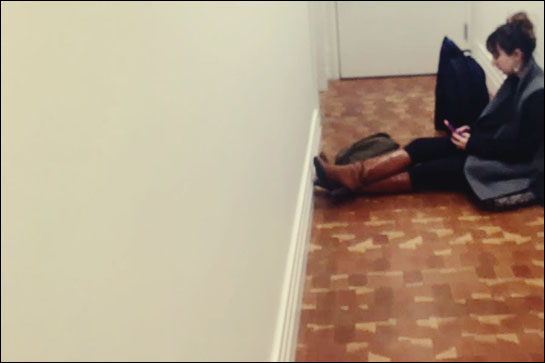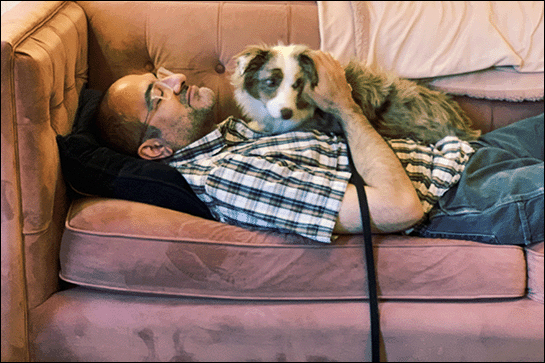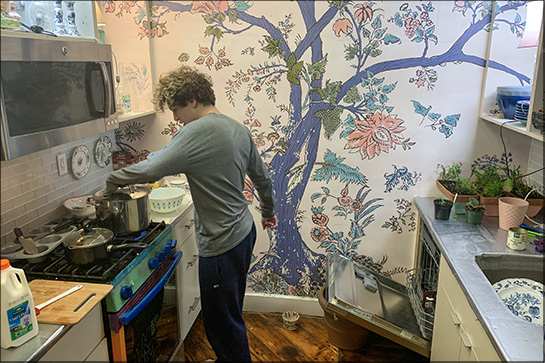
The Bureau of Labor says that by 2026 we will be short 1.2 million engineers. Right now, the majority of developers are men. So presumably it’s a crisis that women are not in STEM.
Microsoft is thinking that filling the funnel with girls is the way forward. Microsoft decides the Wonder Woman movie has a female protagonist, so girls will identify with her. And Microsoft announces it will solve this engineering shortfall with Wonder Woman. Coding lessons for girls! Turn your tech skills into superpowers!
But the majority of people who saw the Wonder Woman movie were male. And, the majority of those viewers were ages 25-44. So Microsoft targeted girls who want to code with a character from a movie only 2% of girls saw.
Which is because it’s likely based on a porn fantasy. But whatever, as a gimmick for coding, Wonder Woman was a huge failure. Luckily we don’t need Microsoft to encourage girls to write code because girls do as well as boys in grade-school coding classes. And girls do as well as boys in computer science courses in college, but girls don’t stay in the major. They don’t like it.
A study from Accenture shows why: girls aren’t interested in the abstraction. “The content of coding projects is typically less engaging for girls, who often prefer health and real-world problem-solving challenges.”
This study is consistent with a study that asked Harvard Business School students what motivated them, and what was the best part of their work experience. Male students were more likely to say they were motivated by competition and female students were more likely to say they were motivated by collaboration.
Stuart Reges teaches computer science at University of Washington and he shows that women and men coded at the same rate until the 80s, when women began to have other professional opportunities. Now, Reges says that after decades of all sorts of initiatives, women are no more than 20% of tech workers in any country, even in societies with otherwise remarkable gender equity.
Finally, research also shows that the less power a woman has in society, the more likely she is to choose STEM. So instead of assuming girls are oppressed and therefore do not code, why not assume girls use their power to choose not to code?
Jacquelynne Eccles found that women primarily choose non-STEM careers because they have strengths that men often lack. Eccles found that if someone has high math skills and only moderate verbal skills, the person will choose a career in STEM. However if they have high math skills and high verbal skills, the person will choose a non-STEM career. Female math students were of course more likely to be in the group with high verbal skills. Eccles concludes that women who are good at math shift away from STEM because they have so many more career opportunities than men who are good at math.
Encouraging women to go into STEM is a waste of money. Any woman who wants to can study STEM. No one is stopping women. Women are choosing not to. So stop trying to get more women to go into STEM and just leave the women alone.
What we do need from the world is marketing that gives girls credit for making good choices. The real superheroes are the ones actually listening to girls, instead of telling girls that their goals aren’t the right ones.

My son Z started getting crazy from the pandemic around the fall of 2021. He’d made very few friends in Boston before Covid, and the friends he did make from music lessons stopped coming to Boston from the suburbs. And he couldn’t really meet new kids, because Covid. Read more

I call Melissa to tell her my newest discovery. I gear up to lecture her about Tango and the Jews. “Do you know about them?” I ask. “I won’t be fun if you already know.”
She says, “I have no idea what you’re talking about.” Read more

Z is recording Bach. Fifteen minutes earlier he lost his music which is normal for him. When he was six years old his teacher could change a bowing pattern right before a performance and he’d remember just fine. Now, at 16, he can’t remember a bowing pattern even if he checks it right before he records. He knows that it’s because of his brain injury, and he tries to be patient with himself. But losing the music is more difficult. Read more

Every morning my Google Calendar alert says “you have no events scheduled today.” This used to be my favorite part of my email, but my prayers for permanent lockdown went unanswered, and my brother did shared screen to help me book a flight and he saw I have no calendar and he lost his shit. Read more
I’m carrying water from the spigot at Northeastern’s playing field across the street and through the park to the garden I planted, probably illegally. I used to think of myself as a community activist. Then I received an email from the state that they would run a lawnmower over my roses and I felt more like a guerrilla gardener. Then I came to water the garden and my hose was gone and the water main was turned off, so now I wonder if I’m a neighborhood pariah.
I try not to take it personally. People warned me that it gets turned off some time in October. And maybe someone thought it was the city’s hose. When people see me working on my garden they always say, “You guys are doing such a great job,” as if somehow I am working in an official capacity. Like the Boston Commissioner of Obsessive Gardening.
The first part of the garden I water is the farthest away from the spigot because if I wait til the end I might decide it’s too far to schlep the water. I created this part of the garden first, and it is a miniature version of my oval-shaped garden back at the farm. There are roses and azaleas but also a few tests tucked in between:
I planted blueberries to test if the rabbits will eat them. The rabbits only ate dwarf highbush, so I left it there and now they leave the rest of the bushes alone: we have reached an understanding.
I planted expensive hydrangeas to see if people would steal them. They didn’t.
I planted daisies to see if people would pick them, and they did. But I was so happy to see people enjoying the garden that I just added more.
While I walk back and forth I sing to myself because I can — this is the first time in 20 years that I’m alone so much of the time. I sing the same song over and over again. I just sort of start with one and then stick with it for the rest of the day. I try to sing softly near the tennis courts but still my black garden buckets swing a little too freely when I walk by the kids waiting to play.
My bucket doesn’t fit right and the spigot sprays all over, so I wear clothes that I don’t mind getting wet. The people around me do not. While I wait for the buckets to fill I toss a couple of stray tennis balls back into the court so I look more relatable. I also look up at my son’s dorm. The building is next to the athletic fields, diagonal from my park. I find his dorm room by counting five windows down from the top and four windows over from the right. He told me it’s crazy how much I look up at his dorm window. But I know he doesn’t think it’s that crazy because he never closes the shade. Anyway, I can’t really see anything — I can only see the light.
If I am too interested in what the other kids are like and whether any of them know my son then I might spill too much water. And if my younger son wants alone time and I have to take my dog with me then I have to take one bucket and not two. Not because I need to hold the leash — I don’t. She knows the garden routine just fine. But when she finds a tennis ball she insists on a game of catch. All the Northeastern kids want to play catch with her. She only plays with me though. That’s the price you pay for a dog who can be off leash in a big city. Nothing is free.
Someone posts a notice that says the garden must be removed and the transgressor must resod.
I continue to water the garden and every time I water I add more things to the garden. Digging is like drawing because I get to make new lines, and putting in new plants is like painting because I can imagine the colors and how they’ll come up next year. The dog digs holes for her tennis balls, and I dig holes for plants, and sometimes we like it so much we do it long after my son has gone to bed.
At 2am I am filling buckets at the spigot and the dog is finding tennis balls in the bushes. I tell myself I don’t need to try to look normal as we cross the street — her prancing with her ball, me splashing with my bucket. No one looks normal at 2am.
In the shadows behind the hydrangeas a guy pops out. I’ve seen him before, watching me garden.
He says, “Why do you do it?”
“The garden?”
“Yeah.”
“Well. I’m not sure what else to do instead.”

People who are not my kids think it’s really interesting to listen to my side of a coaching phone call. In fact, lots of people say they’d pay to hear both sides, but it’s clear to me that if someone knows another person is listening to them the call gets useless fast and sounds more like a job interview. Read more

A majority of people in the US are considering quitting their jobs right now according to the New York Times. This is obvious to me because in the months after the towers fell, my world was my recovery support groups — and in my groups, the conversations were all about who is going back to work. Read more

I treat my freezer like a savings account. As a single parent with an unstable income, I know that when there’s an emergency I’ll use rent money, camp money, or even food money to solve the problem. But no matter what the emergency is, I can’t pay for it with frozen broccoli, so with food in the freezer, we’ll always be able to eat. Read more

I decided that as a responsible parent I should wait to get a new dog until my oldest son leaves for college. It’s his last summer at home. We don’t need more tumult.
I waited until after college applications were done on January 15 and then I answered an ad on Craigslist for a puppy they had to give up because they were allergic. They wanted $400 ahead of time then they’d bring me the puppy.
Okay. Fine. So Craigslist wasn’t a good idea. Then I found a site that matches dogs with new owners and I got matched with a dog that was coming from Russia but would be in Maine, and I wondered, what did I say in my profile that made people think I’m an idiot? Read more



